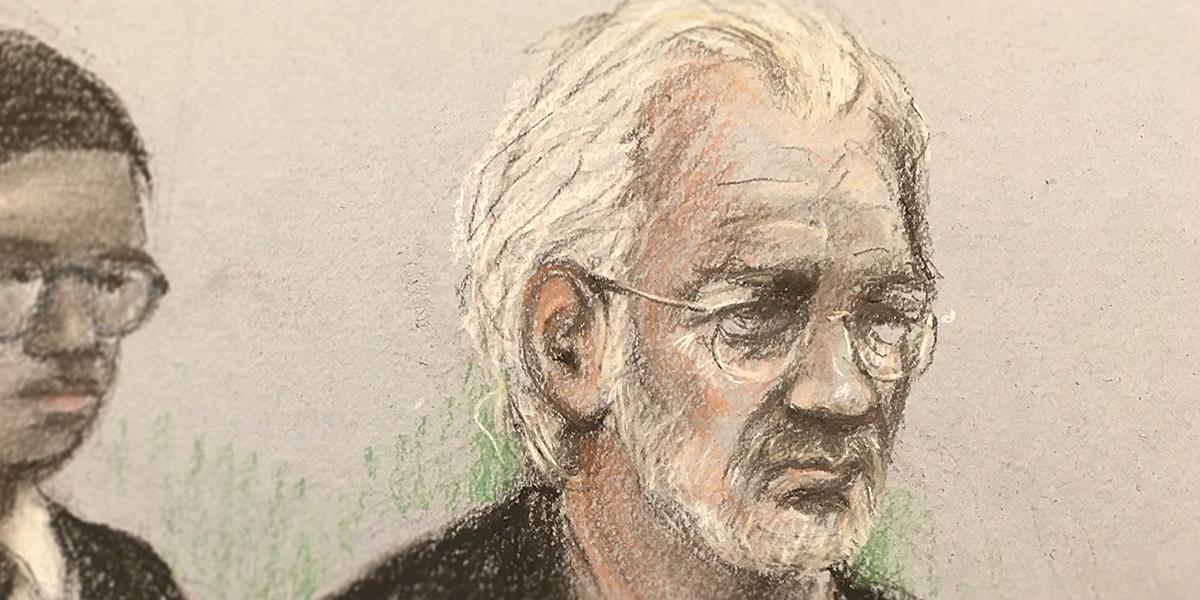
Today marks the second and final day in what could very well be Julian Assange’s last extradition trial in front of the British High Court. For almost five years now, the United States government has been working to get the Wikileaks founder extradited to the US to face charges that he violated the Espionage Act.
Inspired by Daniel Ellsberg’s release of the Pentagon Papers back in 1971, Julian Assange founded Wikileaks in 2006. Assange’s vision was to develop an online portal where whistleblowers could submit evidence of corporate or government wrongdoing without needing to identify themselves or risk exposure. Once submitted, teams of volunteers and journalists would parse the documents to determine legitimacy. And, if it was determined to be authentic, publish the material straight to the internet so the public could see for itself.
For the last decade and a half, Wikileaks has broken a number of major stories. Many of the biggest came from the Afghanistan and Iraq War Logs, along with the so-called Diplomatic Cables leak, all published in 2010. The leaked documents revealed that not only had the US government committed numerous war crimes in Iraq and Afghanistan in the first decade of the war on terror, but there had been official efforts to cover them up.
The Iraq War Logs also brought many details to light about the Central Intelligence Agency’s (CIA) use of torture. And, as journalist Keven Gosztola writes in his excellent book about Assange’s current case, after President Barack Obama famously refused to prosecute anyone involved or compensate survivors of the program, the Diplomatic Cables revealed that American officials “had meddled in the justice systems of France, Germany, Italy, and Spain to shield CIA agents, US military officers, and Bush administration officials from prosecution” related to the torture program.
In 2016, tens of thousands of emails of senior Democratic officials and higher-ups at the Democratic National Committee were leaked to Wikileaks. The emails contained politically damaging revelations for the Hillary Clinton campaign—such as details about a series of private speeches the candidate gave to Wall Street executives—and even some evidence of outright corruption, like the fact that the Democratic National Committee had been sharing upcoming questions with Clinton before primary debates.
A year later, the organization obliterated any resulting goodwill it might have enjoyed from the Donald Trump White House when it published the so-called Vault 7 documents. The leaks detailed aspects of the CIA’s cyber warfare capabilities—most notably the agency’s ability to monitor and remotely control newer cars, smart TVs, personal computers, web browsers, and most smartphones.
The leaks infuriated CIA director Mike Pompeo. In response, he turned the agency’s sights on Assange, who had been granted asylum in the Ecuadorian embassy in London five years earlier. The CIA got UC Global, the Spanish company in charge of the embassy’s security, to secretly record Assange, including while he met with his lawyers, and to send the recordings back to the CIA—a scheme the head of the company would later be charged for in Spanish court.
And according to a stunning Yahoo News report by Zach Dorfman, Sean Naylor, and Michael Isikoff, Pompeo’s CIA then “plotted to kidnap the WikiLeaks founder” by getting UC Global employees to “accidentally” leave the embassy door open. And further, “some senior officials inside the CIA and the Trump administration even discussed killing Assange, going so far as to request ‘sketches’ or ‘options’ for how to assassinate him.” According to depositions from UC Global employees, the preferred plan was to poison the Wikileaks founder.
Evidently, a different approach was chosen. In 2018, the US indicted Assange for conspiring to obtain classified material all the way back in 2010. A year later, Ecuador revoked Assange’s asylum, leading to his April 2019 arrest by London police. The following month, the US requested extradition and added seventeen espionage charges against Assange.
The extradition process has dragged on for almost five years, in large part because of concerns over Assange’s safety in US custody. And based on Dorfman, Naylor, and Isikoff’s reporting, that’s a very reasonable concern.
There are so many absurd and outrageous aspects of what the US government has done, is doing, and aims to do to Julian Assange. Chief among them is the fact that everything federal prosecutors want to charge him with under the Espionage Act is composed of entirely legal, and common, components of journalism. The fact that journalists often seek out, obtain, and publish classified material is the reason the US government has been reluctant to prosecute the Wikileaks founder. If Assange’s journalism is a crime, so is much of the journalism at the New York Times, the Associated Press, and every other major outlet in the country.
Bizarrely, the lead US prosecutor in the case has tried to dodge that inconvenient fact by suggesting Assange is not entitled to First Amendment rights because he is Australian. But remember, they are charging him with violations of the Espionage Act, a US law. So, in other words, US prosecutors believe that a foreign journalist operating outside of the United States must abide by US law, but that at the same time, the US government is not constrained by its own laws because that journalist is a foreigner operating outside of the United States.
Julian Assange is not a spy. Nor is he a terrorist or some Democratic or Republican operative. He is a journalist who foresaw the internet’s potential to empower and protect whistleblowers (the anonymous submission system that Assange and his peers envisioned is now standard across the news industry).
The reason Assange has been in various forms of custody for almost twelve years is not because he committed any real crimes but because he has embarrassed the political establishment.
Today, that same political establishment is feigning outrage over the alleged murder of Russian dissident Alexei Navalny, as well as the ongoing imprisonment of Wall Street Journal reporter Evan Gershkovich in Moscow, all while it maneuvers to throw a Western journalist into solitary confinement for the rest of his life for daring to break truly incriminating stories.
It’s up to those of us who do actually care about the truth and who oppose not only the misdeeds of the foreign regimes that our governments want to overthrow but, more urgently, the authoritarianism already at work in our own countries to demand that those in charge of the United Kingdom and US governments abide by the principles they have so far only pretended to embody. And that starts with dropping the charges against Julian Assange.
If they refuse to do so, that will reveal more about them than any dissident journalist could.


